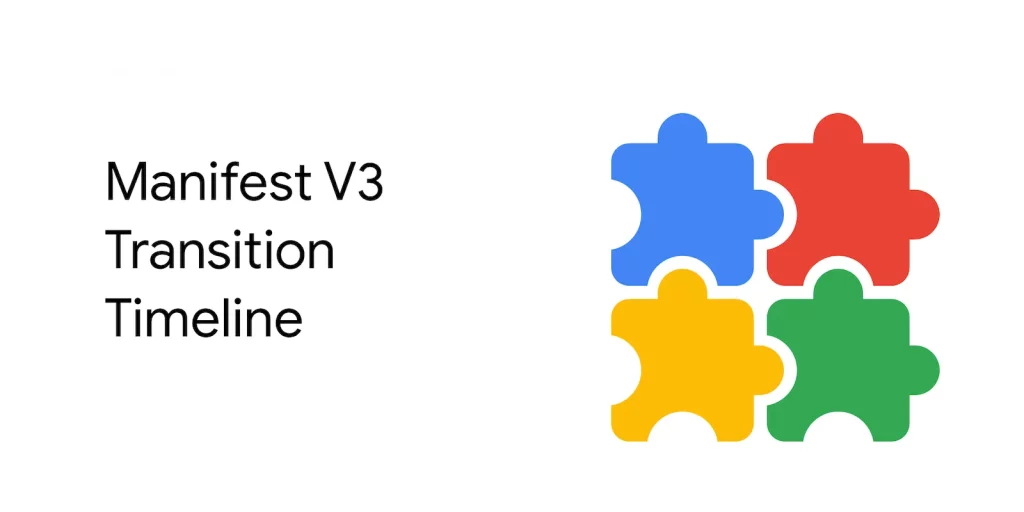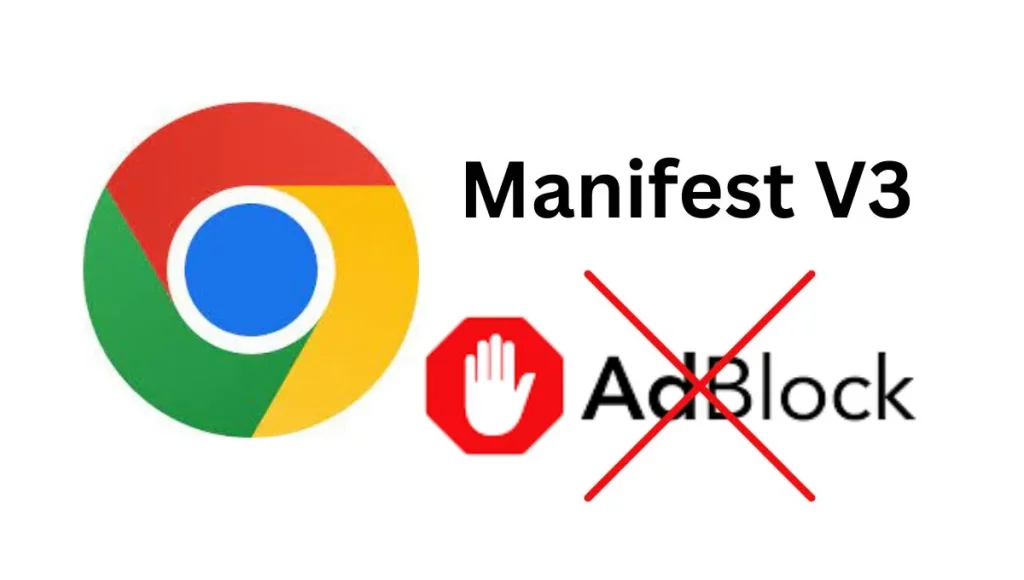In recent years, Google Chrome has maintained its undisputed dominance as the most widely used web browser worldwide. However, this dominance has started to be marked by profound changes in how Chrome extension’s function, which have generated controversy among users and developers.
Starting in 2023, Chrome began phasing out extensions based on the previous version of the Manifest, known as Manifest V2 (MV2), forcing developers to adapt to the new Manifest V3 (MV3), an update that promises to improve the browser's security, privacy, and performance.
While the transition to Manifest V3 has been presented as a necessary improvement, the effects of this update have not been enthusiastically received by all. In fact, one of the sectors most affected by Manifest V3 is extensions that block ads and trackers on the web.
These tools, which have been a fundamental part of the online experience for many users, now face severe technical restrictions under Manifest V3, which could lead to a decrease in their effectiveness. At the same time, the implementation of these new rules with Manifest V3 has sparked a debate about the true motivations behind the change, with suspicions that commercial interests may be involved.
The purpose of this article by ITD Consulting is to delve into the details of this transition to Manifest V3, the key changes it introduces to how extensions function, and the implications for both developers and users.
Additionally, the ITD Consulting team analyzes the criticisms Google has received regarding the nature of these Manifest V3 restrictions and the possibility that the company is seeking to protect its own advertising interests at the expense of extension functionality.

What is Manifest V3 and Why is it Causing Such a Stir?
Manifest V3 is a new version of the set of rules and technical specifications that extension developers for Google Chrome must follow. Through a file called manifest.json, developers define the permissions, functionalities, and access to resources that their extensions can use within the browser.
This new version, Manifest V3, aims, in theory, to improve the performance, security, and privacy of extensions, eliminating potential gaps that could be exploited by malicious extensions.
The most significant change introduced by Manifest V3 is the restriction on access to certain browser resources and functions. For example, the webRequest API, which allowed extensions to intercept and modify network traffic (a key feature for tools like ad blockers), has been replaced by the much more restrictive declarativeNetRequest API.
While the webRequest API allowed extensions to dynamically analyze and modify network requests, the new Manifest V3 API only allows a limited set of predefined rules, which may affect the ability of extensions to efficiently block ads and trackers.
This change has generated a large amount of criticism, especially from those who rely on extensions like uBlock Origin or AdBlock, which were designed to offer full customization in ad filtering. The new rules under Manifest V3 severely limit these capabilities, forcing developers to create lighter versions of these tools, such as uBlock Origin Lite, which lack many of the advanced features users expected.
Ad Blockers Under Manifest V3
One of the most controversial aspects of the transition to Manifest V3 is its impact on ad blockers, which are some of the most popular extensions in Chrome. These blockers allow users to browse the web without the hassle of intrusive ads, improving browsing speed and often the overall user experience. However, with the arrival of Manifest V3, the way these tools interact with web pages has drastically changed.
The most significant change is the removal of the webRequest API, which allowed extensions to access network requests and block or modify them as needed. This API was essential for ad blockers to intercept ad requests before they reached the browser.
In its place, Manifest V3 introduces the declarativeNetRequest API, which imposes a limit on the number of rules that can be applied, restricting the ability of blockers to effectively filter dynamic ads or complex scripts.
This has led many extensions to alter their approach. For example, uBlock Origin had to release a reduced version, uBlock Origin Lite, which lacks the same flexibility as the original version. While some users may continue using these blockers, the new version cannot block ads as efficiently as before. Developers have attempted to mitigate this impact of Manifest V3 by increasing the number of allowed rules, but many users continue to complain about the reduced effectiveness of these tools.
In addition to the limitation on filtering rules, the new permission policies under Manifest V3 also affect how extensions can interact with browser tabs. Extensions in Manifest V3 can now only be activated in specific tabs, rather than across the entire browser, further limiting their ability to block ads on websites that use more sophisticated ad delivery techniques.
Google's Argument: Security and Performance
Google has justified the transition to Manifest V3 as a measure to improve browser security, privacy, and performance. According to the company, the shift to this new Manifest V3 version will allow extensions to function more efficiently, while reducing security risks associated with malicious extensions.
Google argues that the new Manifest V3 provides a safer framework for extensions, limiting access to sensitive APIs and ensuring that code is only loaded from verified sources.
For example, Manifest V3 eliminates the possibility of executing remotely hosted code, meaning all extensions must include their code within the extension itself. This helps prevent malicious extensions from loading scripts from unverified sources, which could compromise user security.

Additionally, the new declarativeNetRequest API reduces the possibility of extensions making unwanted changes to network traffic, which may contribute to improving user privacy.
On the performance front, the transition to Manifest V3 also seeks to improve extension efficiency. The removal of Background Pages and their replacement with Background Service Workers aims to reduce background resource consumption.
Service Workers allow extensions to continue operating, but in a more efficient manner, resulting in lower memory usage and better overall browser performance.
However, the real impact of these measures on performance and privacy is difficult to assess, as not all users feel that the browsing experience has significantly improved. Many ad blockers and other privacy extensions are still struggling to adapt to the restrictions of Manifest V3, suggesting that the improvements in security and efficiency may be limited.
Criticism: Is Google Trying to Protect Its Advertising Revenue?
Despite Google's arguments in favor of Manifest V3, many critics have pointed out that the real reason behind the implementation of these new restrictions could be to protect the company's commercial interests. Google is the largest advertising network in the world, and ad blockers have long been a threat to its business model.
If users block ads, Google loses revenue generated from its advertising platform, leading many to speculate that the goal of Manifest V3 is precisely to weaken the tools that allow ad blocking.
Developers of ad blockers, such as the creators of uBlock Origin and AdGuard, have pointed out that the new version of Manifest limits their filtering capabilities, which could reduce the effectiveness of their tools.
Despite Google’s claims that the transition to Manifest V3 is not related to commercial interests, criticism remains strong, particularly because most of the extensions most affected are those that help protect users' privacy against ads and online tracking.
Moreover, it has been suggested that by eliminating the ability to block ads more effectively with Manifest V3, Google might be favoring advertisers who generate revenue through the company’s advertising networks. Despite Google's official explanations, the perception that this change benefits its own commercial interests persists in the tech community.
Impact on Chrome Users and Available Alternatives
For Google Chrome users, the transition to Manifest V3 represents a significant alteration in how they interact with the browser. Those who depend on ad blocking extensions and other privacy tools have been affected by the reduced functionality of these tools, which could lead to a less optimized and more intrusive browsing experience.
Fortunately, alternatives exist for those users who are unwilling to accept the restrictions imposed by Google. Some Chromium-based browsers, such as Brave, Vivaldi, and Microsoft Edge, offer a more flexible experience when it comes to installing and using extensions.
Brave, for example, has been especially popular among users looking for a browser that includes a built-in ad blocker, allowing them to enjoy an ad-free experience without needing additional extensions. Additionally, Brave has been very responsive to criticism of the transition to Manifest V3, and some users see this browser as an ideal option for maintaining control over their online experience.
Microsoft Edge, which is also Chromium-based, has started incorporating privacy-focused features such as an integrated tracker-blocking system and greater flexibility in customizing extension behavior. While not as popular as Chrome, Edge has gained traction among users who want a more privacy-conscious browser.
The Transition Will Be Gradual: What to Expect
The process of transitioning to Manifest V3 is underway, and it is expected to last until early 2025. By then, all extensions that do not adapt to the new Manifest V3 requirements will be disabled in Chrome.
While many developers have already made the transition, some ad blockers and other privacy extensions have yet to find a suitable solution for Manifest V3, which could leave users without effective filtering options.
Google has implemented a grace period to give developers time to adapt, but users will need to be prepared for the changes that lie ahead. The transition will be complex and could result in a less personalized browsing experience for those who rely on more advanced extensions.

The transition from Manifest V2 to Manifest V3 is a significant change in how Chrome extensions interact with the browser. While Google’s goal is to improve the security, privacy, and performance of its platform with Manifest V3, the measure has generated widespread criticism, particularly from those who depend on extensions like ad blockers for a more controlled browsing experience.
The implementation of these new restrictions with Manifest V3 has made it clear that Google is betting on a safer and more efficient environment, but at the cost of the functionality of key tools that users value. Although Google defends its stance as a measure to benefit security, suspicions about the company’s commercial interests continue to grow.
For Chrome users, the transition to Manifest V3 presents a dilemma: adapt to the new browser rules or look for alternatives in other browsers that offer a more flexible experience. Ultimately, how these challenges are resolved will determine the future of extensions in Chrome and the level of control users can maintain over their online experience.
If you want to learn more about Manifest V3 and how it might affect your business, email us at [email protected]. Our team of technology experts is ready to help you navigate Google’s technological changes with Manifest V3.





